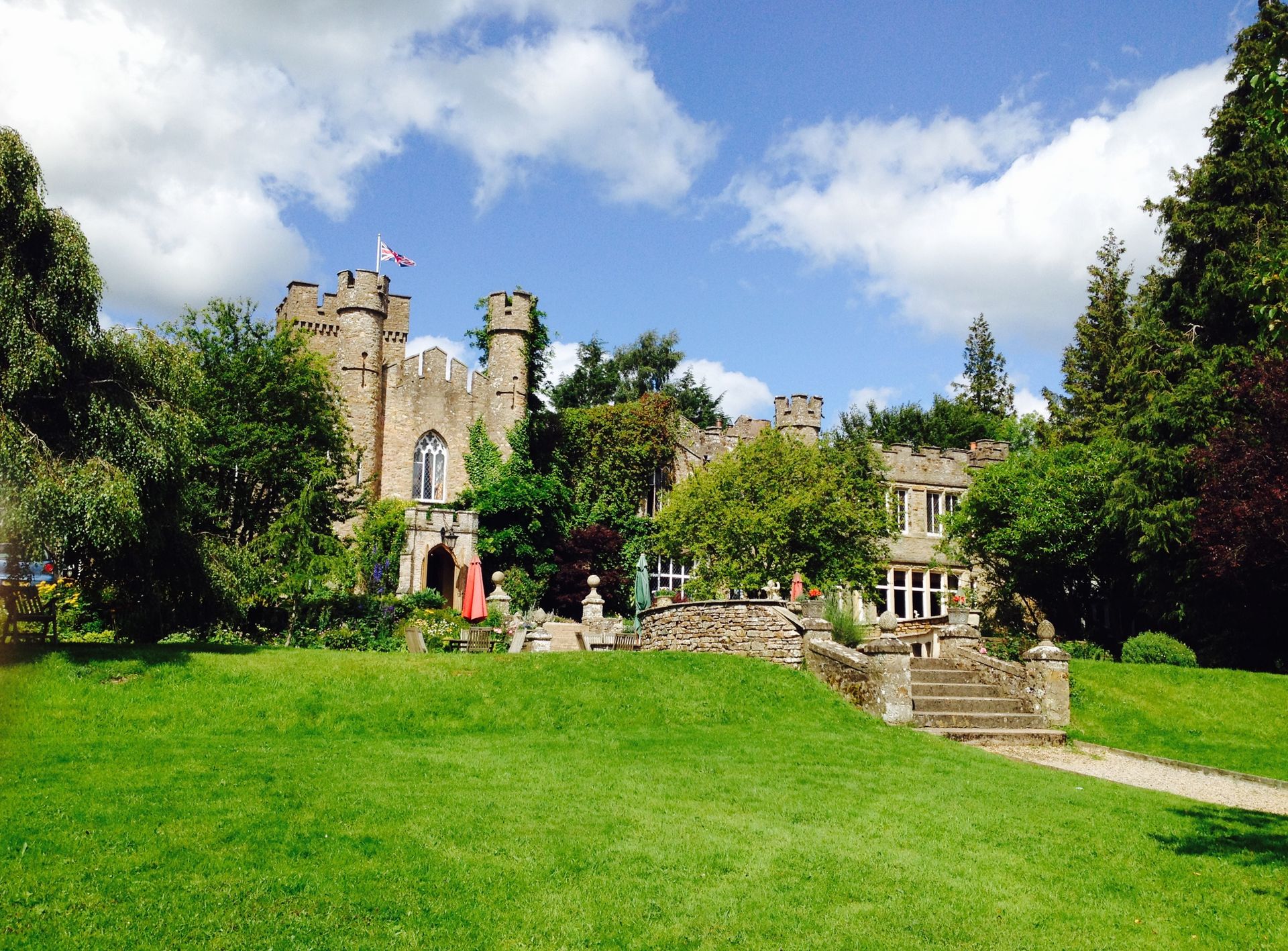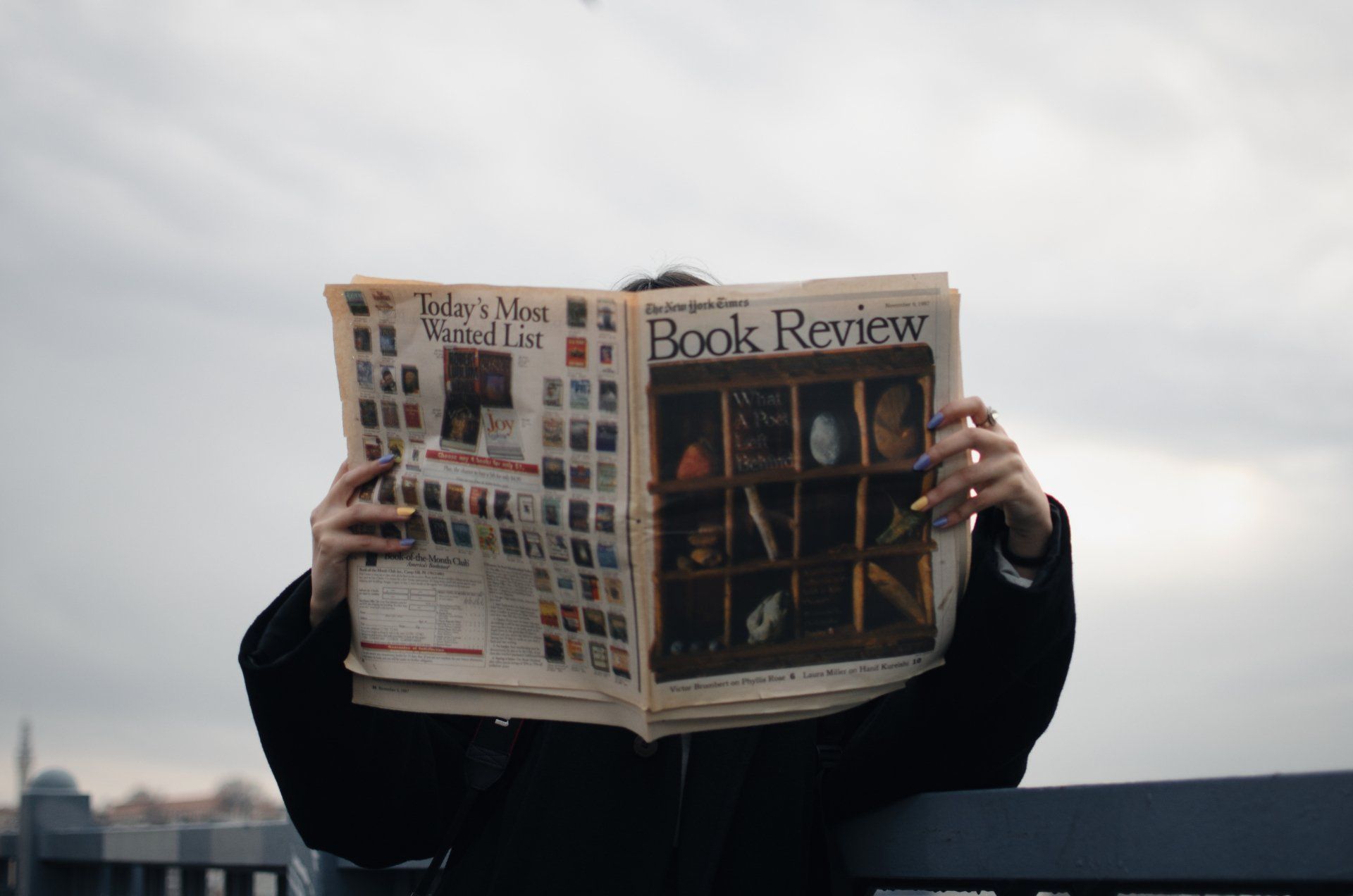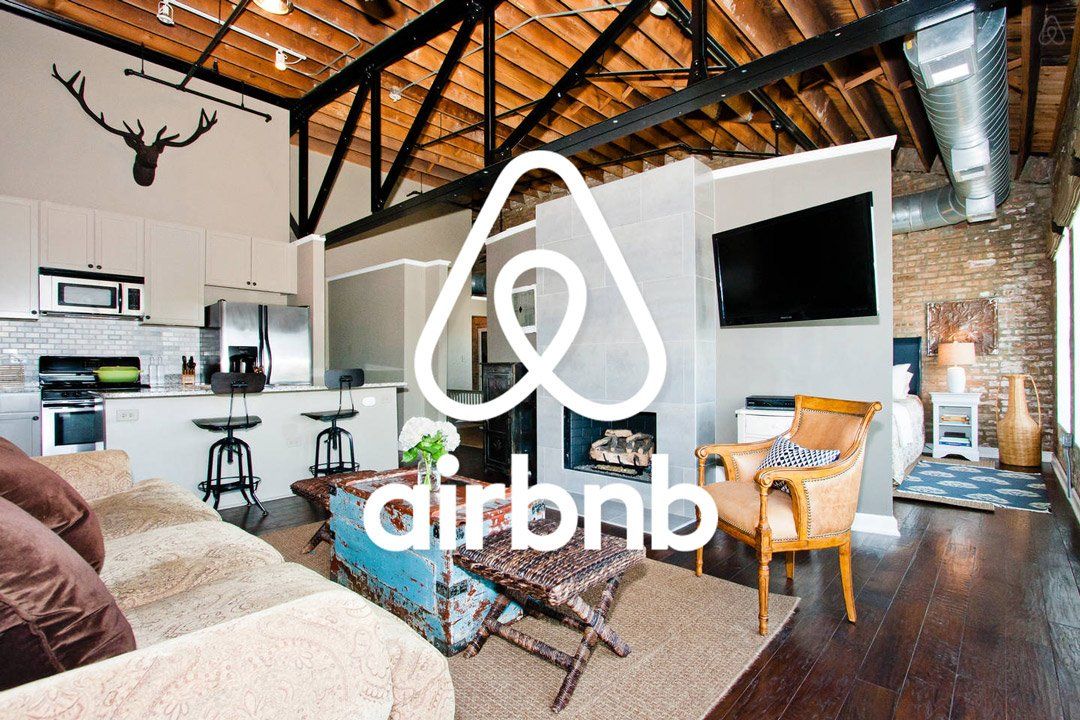Know your worth
- By Simon Bennett
- •
- 01 Oct, 2016
When price doesn't equal value

Editor and publisher of the Good Hotel Guide, Adam Raphael is one of my hospitality heroes along with publisher Alastair Sawday and journalist Fiona Duncan. Together they champion the independent hotelier and celebrate all that makes an independent place to stay a special and unique experience.
But I don’t always agree with his politics. He is, after all, an ex Guardian hack and I am a died in the wool reader of the Telegraph - not for its politics, I can make up my own mind about that, but for its writing - and never the twain shall meet.
This week, in his monthly mailing to the Good Hotel Guide faithful he writes about the precarious financial nature of independent hotel-keeping. That this business is precarious in the extreme is a point well made. He highlights the root of the preposterous financial balancing act of running a hotel on a shoestring while keeping customers in the lap of luxury as being the un-cooperative, even hostile attitude of the banks towards hospitality. Indeed my new book, Stop For Breakfast throws a spotlight on the personal cost of struggling through the last eight years of financial hell in a climate of heightened financial scrutiny and suspicion.
But he is wrong to imply that this is the sole, or even main reason for the difficulties so many hoteliers are facing.
Our relationship with our long term lenders remains a good one, based on open and honest communication. Business is good and if we did not have such an enormous mortgage - accumulated, ironically, thanks to the bank’s enthusiasm to lend us whatever we asked for throughout the 2000s - we’d be laughing all the way back to the bank.
What Adam fails to acknowledge is the woes of too many hoteliers are of their own making. We have worked hard to get our marketing right to attract the right sort of customers. For all the digital enhancements there have been to how we communicate with customers, the basics of the marketing mix remain the same and at its heart are a quality product delivered at a price which makes a profit and which meets the customer’s expectations.
We have resolutely refused to slash our prices during the recession or since. We care nothing for websites offering 70% off luxury hotel rooms. The idea that ‘even luxury hotels don’t want empty beds’ is barmy and yet this is where too many hotels are going wrong. Firstly for over-using the word luxury - setting often unrealistic and unattainable expectations - and then filling their rooms with cut price guests (from websites which then charge a fortune in commission as well) who do nothing but detract from the luxury ambiance the hotel is trying to foster. The swankiest places filled with oiks are not places most people with bulging pockets want to be.
And herein lies the real problem. We live in a post recessional, online marketed world where price has become confused with value and too many people think they are entitled to expect to pay full price for nothing. In panicked desperation some hoteliers have jumped on the price-cutting bandwagon and filled their rooms with customers concerned only with price and caring nothing for the value of what they’re getting. They don’t up-sell, they don’t refer (other than to other cheap customers), they’ll only return when the next price cut slashes even deeper.
Effective marketing is about maximising the lifetime value of the customer - that means their repeat visits, the referrals they make, the reviews they write, the word of mouth they generate. If you are only attracting fly-by-night customers with the life-time value of a gnat you haven’t got a very resilient business model. It’s a strategy that might have kept the lights on during the darkest days of the recession but it’s not one on which to build a brighter financial future. it’s great for keeping up occupancy but the real measure of success is profit per room - something rarely measured in most hotels - because low profits combined with high occupancy makes busy fools. The banks know it which is why they are only looking at businesses who know their own worth because if we don’t understand what we’re worth, the customer sure as hell isn’t going to.
We’re sure of the value of what we provide and we aren’t about to start short selling ourselves which is why we would rather have empty rooms than rooms filled with the wrong people and why, when we are busy so many of our rooms are filled with happy return guests or those recommended by others who recognise value for money doesn’t mean cheap as chips.
It’s a strategy which seems to have worked for us for eighteen years.
But I don’t always agree with his politics. He is, after all, an ex Guardian hack and I am a died in the wool reader of the Telegraph - not for its politics, I can make up my own mind about that, but for its writing - and never the twain shall meet.
This week, in his monthly mailing to the Good Hotel Guide faithful he writes about the precarious financial nature of independent hotel-keeping. That this business is precarious in the extreme is a point well made. He highlights the root of the preposterous financial balancing act of running a hotel on a shoestring while keeping customers in the lap of luxury as being the un-cooperative, even hostile attitude of the banks towards hospitality. Indeed my new book, Stop For Breakfast throws a spotlight on the personal cost of struggling through the last eight years of financial hell in a climate of heightened financial scrutiny and suspicion.
But he is wrong to imply that this is the sole, or even main reason for the difficulties so many hoteliers are facing.
Our relationship with our long term lenders remains a good one, based on open and honest communication. Business is good and if we did not have such an enormous mortgage - accumulated, ironically, thanks to the bank’s enthusiasm to lend us whatever we asked for throughout the 2000s - we’d be laughing all the way back to the bank.
What Adam fails to acknowledge is the woes of too many hoteliers are of their own making. We have worked hard to get our marketing right to attract the right sort of customers. For all the digital enhancements there have been to how we communicate with customers, the basics of the marketing mix remain the same and at its heart are a quality product delivered at a price which makes a profit and which meets the customer’s expectations.
We have resolutely refused to slash our prices during the recession or since. We care nothing for websites offering 70% off luxury hotel rooms. The idea that ‘even luxury hotels don’t want empty beds’ is barmy and yet this is where too many hotels are going wrong. Firstly for over-using the word luxury - setting often unrealistic and unattainable expectations - and then filling their rooms with cut price guests (from websites which then charge a fortune in commission as well) who do nothing but detract from the luxury ambiance the hotel is trying to foster. The swankiest places filled with oiks are not places most people with bulging pockets want to be.
And herein lies the real problem. We live in a post recessional, online marketed world where price has become confused with value and too many people think they are entitled to expect to pay full price for nothing. In panicked desperation some hoteliers have jumped on the price-cutting bandwagon and filled their rooms with customers concerned only with price and caring nothing for the value of what they’re getting. They don’t up-sell, they don’t refer (other than to other cheap customers), they’ll only return when the next price cut slashes even deeper.
Effective marketing is about maximising the lifetime value of the customer - that means their repeat visits, the referrals they make, the reviews they write, the word of mouth they generate. If you are only attracting fly-by-night customers with the life-time value of a gnat you haven’t got a very resilient business model. It’s a strategy that might have kept the lights on during the darkest days of the recession but it’s not one on which to build a brighter financial future. it’s great for keeping up occupancy but the real measure of success is profit per room - something rarely measured in most hotels - because low profits combined with high occupancy makes busy fools. The banks know it which is why they are only looking at businesses who know their own worth because if we don’t understand what we’re worth, the customer sure as hell isn’t going to.
We’re sure of the value of what we provide and we aren’t about to start short selling ourselves which is why we would rather have empty rooms than rooms filled with the wrong people and why, when we are busy so many of our rooms are filled with happy return guests or those recommended by others who recognise value for money doesn’t mean cheap as chips.
It’s a strategy which seems to have worked for us for eighteen years.

Augill Castle, the hotel I started and have run with my wife for twenty-one years made the cut for five years running to appear in The Sunday Times Ultimate 100 British Hotels list. It's no mean feat for a hotel run by a couple with limited resources who started with the philosophy of wanting to bring their children up in a big house in the country and open a few guest rooms to help pay for the roof repairs.
That was in 1997 and since then the place has grown, we've acquired the rest of the estate which had been in other hands and put it all back together as a fifteen bedroom hotel. Except that it's not a hotel. It's a place to stay where guests find a sense of belonging, in many ways the very antithesis of a hotel. That initial philosophy of opening the doors of our home to share with guests remains as central to what we do now as ever.
So it is heartening and deeply satisfying the read The Sunday Times' write up of their hotel of the year in 2016, The Painswick in The Cotswolds. That it sounds such an idyllic place is because the words could have been written about Augill:
'It [the hotel] does not feature groundbreaking ideas in hospitality'
'It's simply a beautiful place, run with enthusiasm, care and a touch of humour'
'The building is immensely satisfying, with thick, thick walls and a pleasing patina of age'
'Somewhere as lovely as this didn't need messing about with... remodelled it with simplicity and style'
'The beds are big, the duvets fluffy, the towels even fluffier'
'The common areas are full of of good vibes and neat touches... fires and fall-asleep-comfy sofas... actually relaxed enough to do just that'
'There are games - proper ones like Cluedo and Scrabble'
'A place with history, warmth and immense charm'
Our own write-up wasn't bad either, focussing on our let-them-be-children attitude to younger visitors.
But let me return to the first sentence of that year's Ultimate 100 hotel list: 'First, an apology. The Sunday Times Hotel of the Year 2016 is not innovative.'
On the contrary, The Painswick, and by association all those of us who have been doing things this way for years, are at the cutting edge of innovation, constantly re-inventing ourselves and devising ever more simple ideas to satisfy our customers' demands for, well, put simply, simplicity.
To give The Sunday Times the last word: 'Simple things done well - and when you do lots and lots of those they add up to something special'
And it is those things that guests old and new need to hear about and buy into when they read about any hotel.
That was in 1997 and since then the place has grown, we've acquired the rest of the estate which had been in other hands and put it all back together as a fifteen bedroom hotel. Except that it's not a hotel. It's a place to stay where guests find a sense of belonging, in many ways the very antithesis of a hotel. That initial philosophy of opening the doors of our home to share with guests remains as central to what we do now as ever.
So it is heartening and deeply satisfying the read The Sunday Times' write up of their hotel of the year in 2016, The Painswick in The Cotswolds. That it sounds such an idyllic place is because the words could have been written about Augill:
'It [the hotel] does not feature groundbreaking ideas in hospitality'
'It's simply a beautiful place, run with enthusiasm, care and a touch of humour'
'The building is immensely satisfying, with thick, thick walls and a pleasing patina of age'
'Somewhere as lovely as this didn't need messing about with... remodelled it with simplicity and style'
'The beds are big, the duvets fluffy, the towels even fluffier'
'The common areas are full of of good vibes and neat touches... fires and fall-asleep-comfy sofas... actually relaxed enough to do just that'
'There are games - proper ones like Cluedo and Scrabble'
'A place with history, warmth and immense charm'
Our own write-up wasn't bad either, focussing on our let-them-be-children attitude to younger visitors.
But let me return to the first sentence of that year's Ultimate 100 hotel list: 'First, an apology. The Sunday Times Hotel of the Year 2016 is not innovative.'
On the contrary, The Painswick, and by association all those of us who have been doing things this way for years, are at the cutting edge of innovation, constantly re-inventing ourselves and devising ever more simple ideas to satisfy our customers' demands for, well, put simply, simplicity.
To give The Sunday Times the last word: 'Simple things done well - and when you do lots and lots of those they add up to something special'
And it is those things that guests old and new need to hear about and buy into when they read about any hotel.

At the Independent Hotel Show this week I found myself on stage twice, talking first about what makes an independent hotel stand out from the crowd and second, how do we turn the online travel agents (OTAs) which have become so dominant in global travel from the perceived enemy to the hotelier’s friends.
In several ways the two discussions are closely related. While some say that independent hotels are such small fry they have little bargaining power so can be effectively bullied by the big OTAs their independence is also what makes them unique, interesting, innovative and therefore attractive for the OTAs to have on their books because ultimately the OTAs need engaging content to sell to their customers. Also, let’s not forget that more than half of the hotel bedrooms in the UK are still behind the doors of independent hotels, many of whom will never be swallowed up by the branded companies thanks precisely to their individuality and quirkiness.
When most hoteliers speak about OTAs, often spitting the phrase with venom, they are invariably referring to the likes of Booking.com, Expedia.com and other global brand leaders in the online travel market. But these are relatively new to the market place, having only asserted their dominance in the last ten years, stealing a march on the rest of the hospitality and travel industry which was either dozing or navel gazing in the wake of the global financial crisis. We were slow to innovate, they were not. We can’t really blame them for that. They saw a gap in the market - a big gap - and filled it very efficiently and effectively. They charge anything between 15% and 25% for their services and have been accused of adopting bullying tactics towards hotels which don’t hand over all their rooms or don’t share all their special offers online. Some hotels now sell almost all their rooms through big OTA’s, paying these eye-watering fees every time.
15% or even 25% as a one-off fee is not expensive to acquire a new customer but only if, once that customer becomes a guest - the moment they walk through the hotel’s front door to sleep in the bed, dine at the table, drink at the bar - the hotel employs every tool at their fingertips to engender loyalty and make them theirs and not the OTA’s. The hotel that allows the guest to slip through their fingers and re-book via a different channel rather than direct with thew hotel is a fool to themselves. I speak from experience because we have allowed it to happen in the past by not being on the ball. In a fast moving and competitive industry like this complacency is our greatest enemy when our independence and ability to flex, adapt and to inform and engage our guests should be our greatest strength.
Inform, engage, surprise and delight, keep in touch and make it as easy as possible for guests to use your own booking site as anyone else's were the themes that rang loud and clear this week.
And while in both talks there was much discussion about what makes independent hotels stand out, their points of difference, let’s remember that just as all hotels were not created equal, neither were online travel agents.
Long before Booking.com was roaring onto our cinema screens with their booking.yeah slogans, smaller niche operators had started the online revolution.
Two that we have used for many years, i-escape.com and celticcastles.com both also charge commission. But their point of difference, strikingly similar to our own, is their independence and their knowledge of their clients. They are paid by hotels to find the right sort of guests so they work hard to curate the traffic that reaches us through personal contact and effective, focussed marketing because we are their clients. They are, in effect dating agencies, matching the right places with the right guests so that everyone on both sides of the transaction gets the best deal and long lasting relationships can flourish.
Ironically we are, of course, also Booking.com and Expedia.com clients but that relationship seems to go unacknowledged with their entire service geared towards the guests who pay nothing to use the service and their view of hotels being just a source of room inventory. They do this at their peril. Undoubtedly, it’s a fast track to a quick buck but as the big OTAs get bigger their offer becomes more unwieldy (Booking.com now has 1,052,185 hotels and counting worldwide on its books) and customers will start looking for more sophisticated ways to sift, select and satisfy their requirements than just price and location. Travellers want experiences now, they want to be part of the story and they need travel partners who understand that and can help make it happen - something the smaller specialist operations are already getting right.
Add to that the ever growing awareness travellers have that every time they book with a global OTA up to 25% less will go back into the local economy of the place in which they want to stay (and if they enjoy, may want to return to) and a world of branded hotels and homogenous booking engines starts to become a lot less attractive and sustainable than a world of independent hoteliers offering unique experiences through travel agents who understand them and who all have increasingly slick booking engines of their own to ease the traveller’s repeat reservation.
It may be a Utopian dream but without hotel rooms to sell and with enlightened guests able to make their own decisions quickly and effortlessly directly with a hotel or niche agent who understands their needs it may become not so much booking.yeah as booking.nah.
And finally, do we use big OTAs at Augill? Of course we do - they're an important and valuable part of the marketing mix. Booking.com has enabled us to access far flung markets we could only have dreamt of on our own. But we see it as a partnership, not a master and slave relationship. Hopefully that doesn't sound too Utopian...







